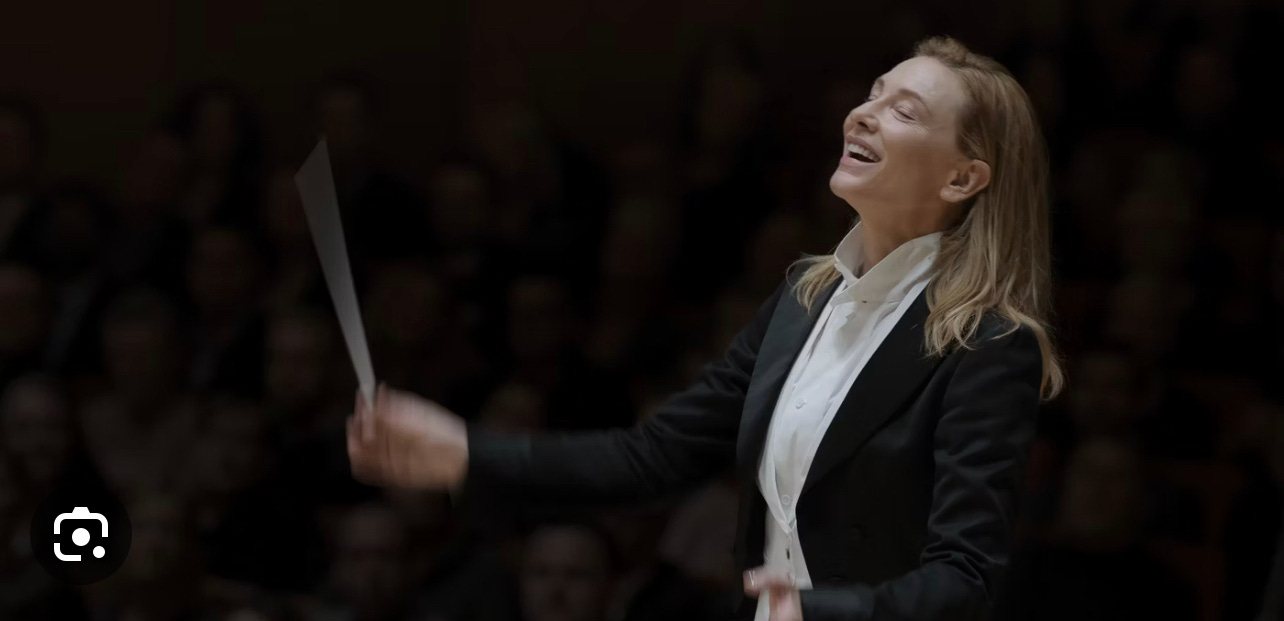Film: “Tar” starring Cate Blanchett
“Me-too” behavior isn’t confined to Hollywood or the C-suite. Apparently, it also happens in the classical music world, too. That’s the focus of Todd Field’s film “Tar” (2022) which dazzled so many moviegoers last year—and yours truly on the plane ride out West.
Cate Blanchett plays the eponymous Lydia Tar, newly named conductor of the New York Philharmonic. As the film opens, she is interviewed by New Yorker editor Adam Gopnik, answering off his softball questions with charm and aplomb while referring often to her mentor, Leonard Bernstein and his (and her) obsession with Gustav Mahler.
Turns out Lydia has several clocks to punch, which her assistant Francesca (Noemi Merlant) ably manages. First, she needs to fly back to Berlin where she currently conducts the Philharmonic. There she lives with her wife Sharon (Nina Hoss) and their young daughter Petra (Mila Bogojevic.)
We soon discover Lydia is not exactly the maternal type. In fact, her confidence borders on downright arrogance. While still in NYC, she berates Max (Zethphan D. Smith-Gneist), a young BIPOC Juilliard student in her conducting class, his leg begins to shake uncontrollably and he walks off stage calling her a “F*cking b*tch”. In Berlin, when she learns her daughter is being bullied by a little girl, she confronts the bully and threatens her. Unhappy with the old fart assistant conductor at the Berlin Phil, she decides to sack him.
So where’s the “me-too” part come in? Apparently, Lydia who is lesbian has a roving eye for the ladies. One of them, Kristi Taylor (Sylvia Flote) with whom she may or may not have had an affair, obsessively sexts her. When Olga (Sophie Kauer) a talented and beautiful young Russian cellist shows up at a Berlin rehearsal wearing a sexy sweater, Lydia is so enchanted, she makes her the soloist in an upcoming concert.
The movie turns dark and suspenseful at this point and suffice to say, actions do have their consequences.
Blanchett, as always, gives an astonishing performance, admonishing her orchestra in German, nailing the conductor moves with authenticity, and most of all, portraying a woman who turns out to be as shamelessly sex-driven as her idol Leonard Bernstein. The comparisons with Thomas Mann’s Gustav Aschenbach and his obsession with young Tadzio are well done.
“Tar” is a quietly brilliant film that with its references to Elgar, Beethoven, and Furtwangler may initially cause you to pull your hair out. But once it gets going, the movie will flatter you down to your inner scherzo. “Tar” was music to my ears and hopefully to yours too.


